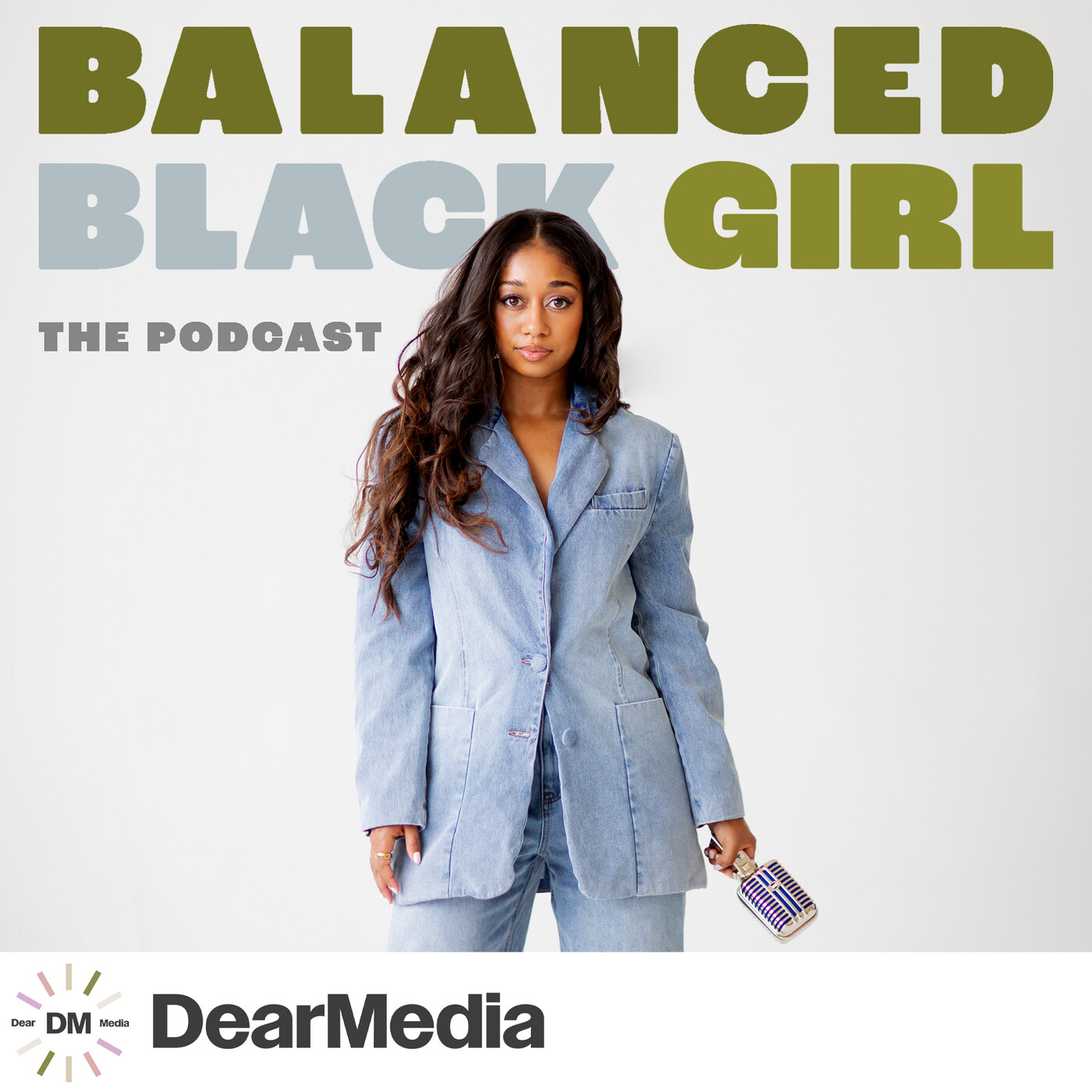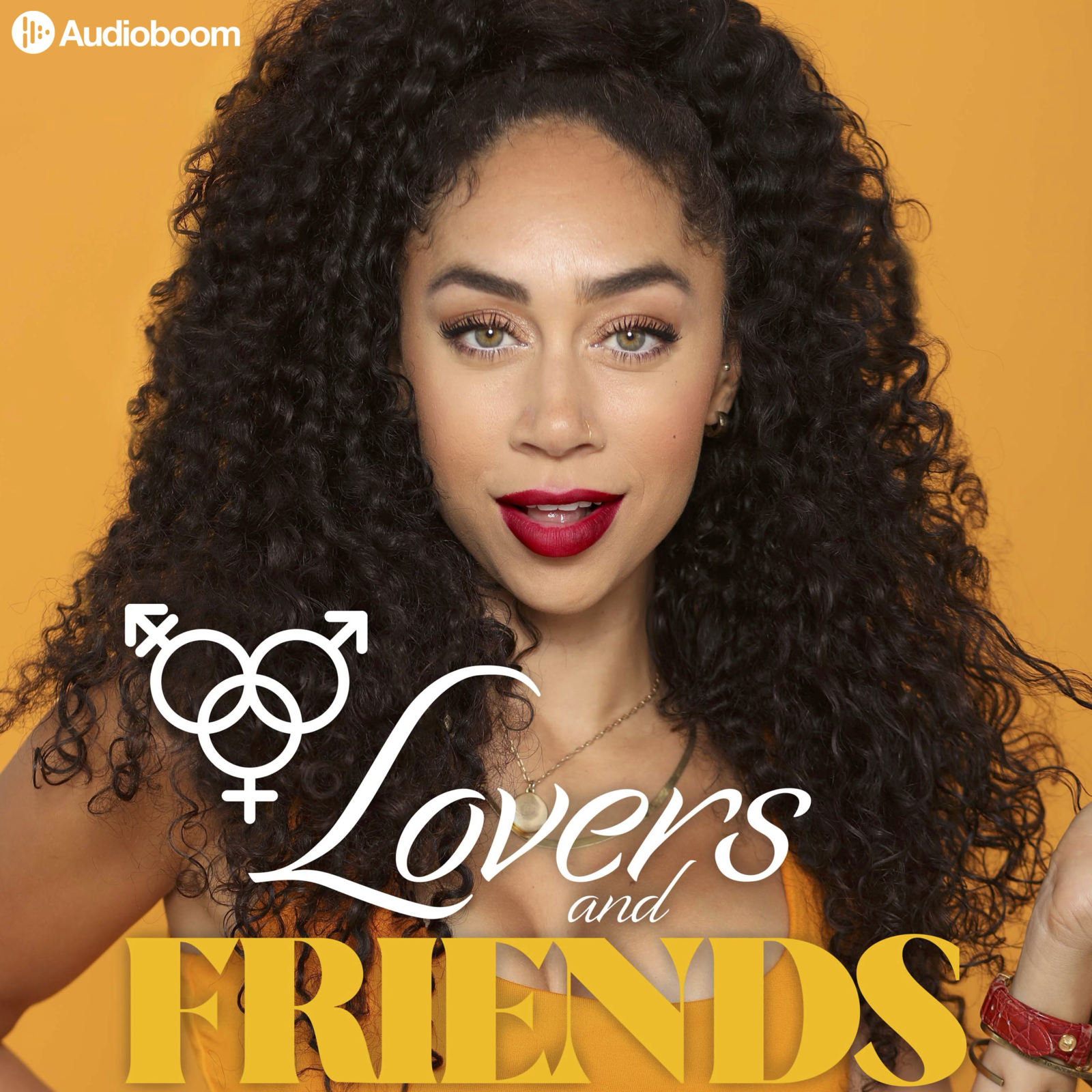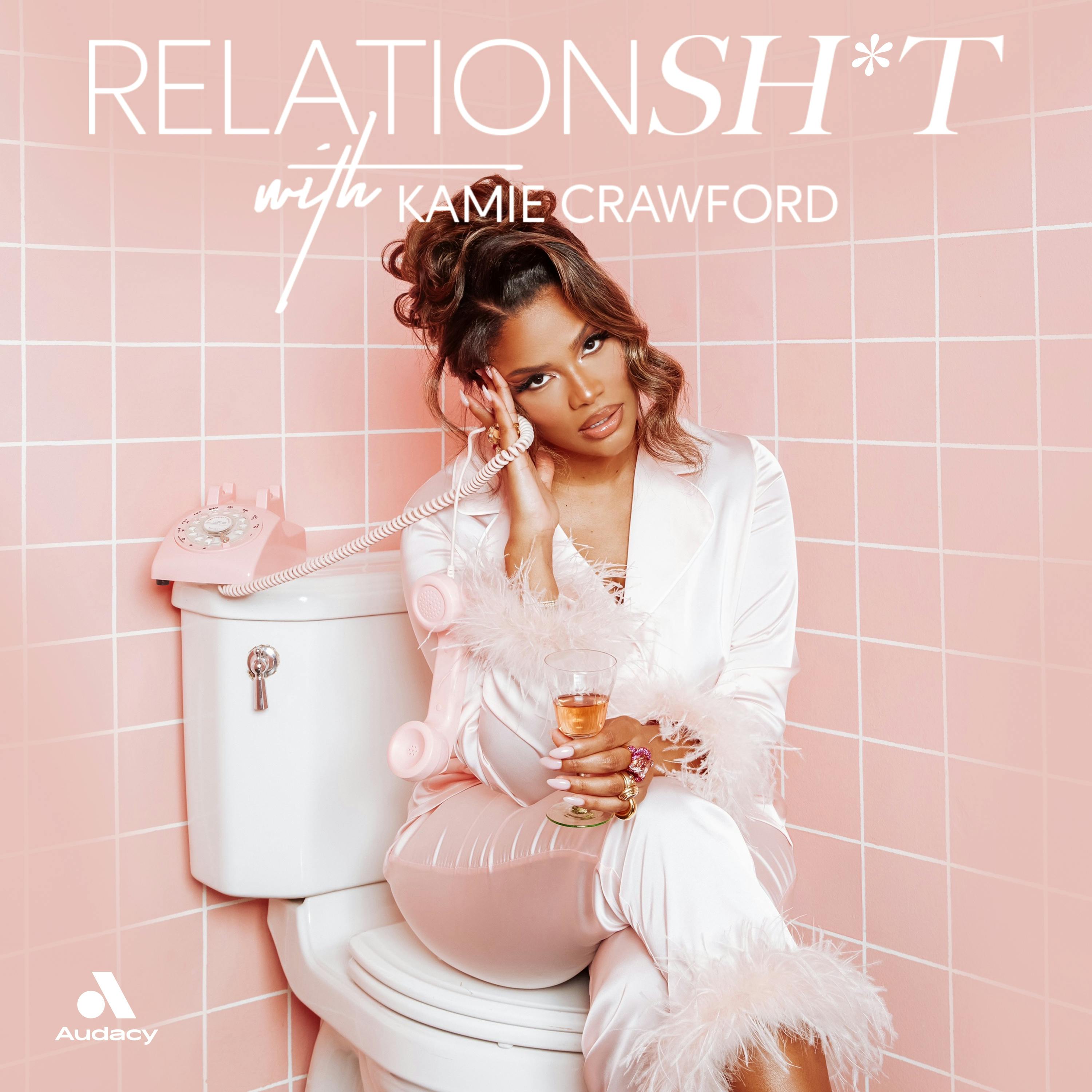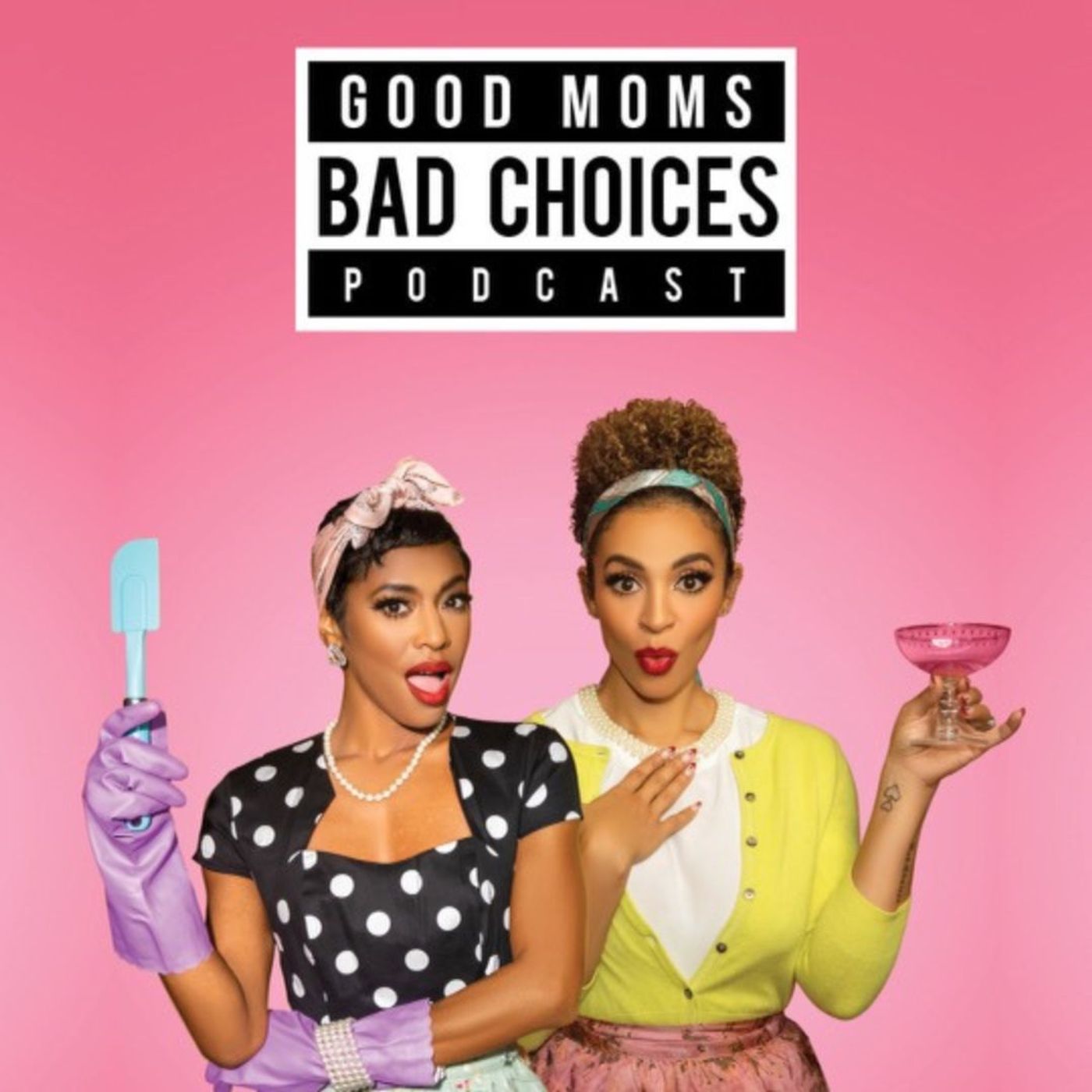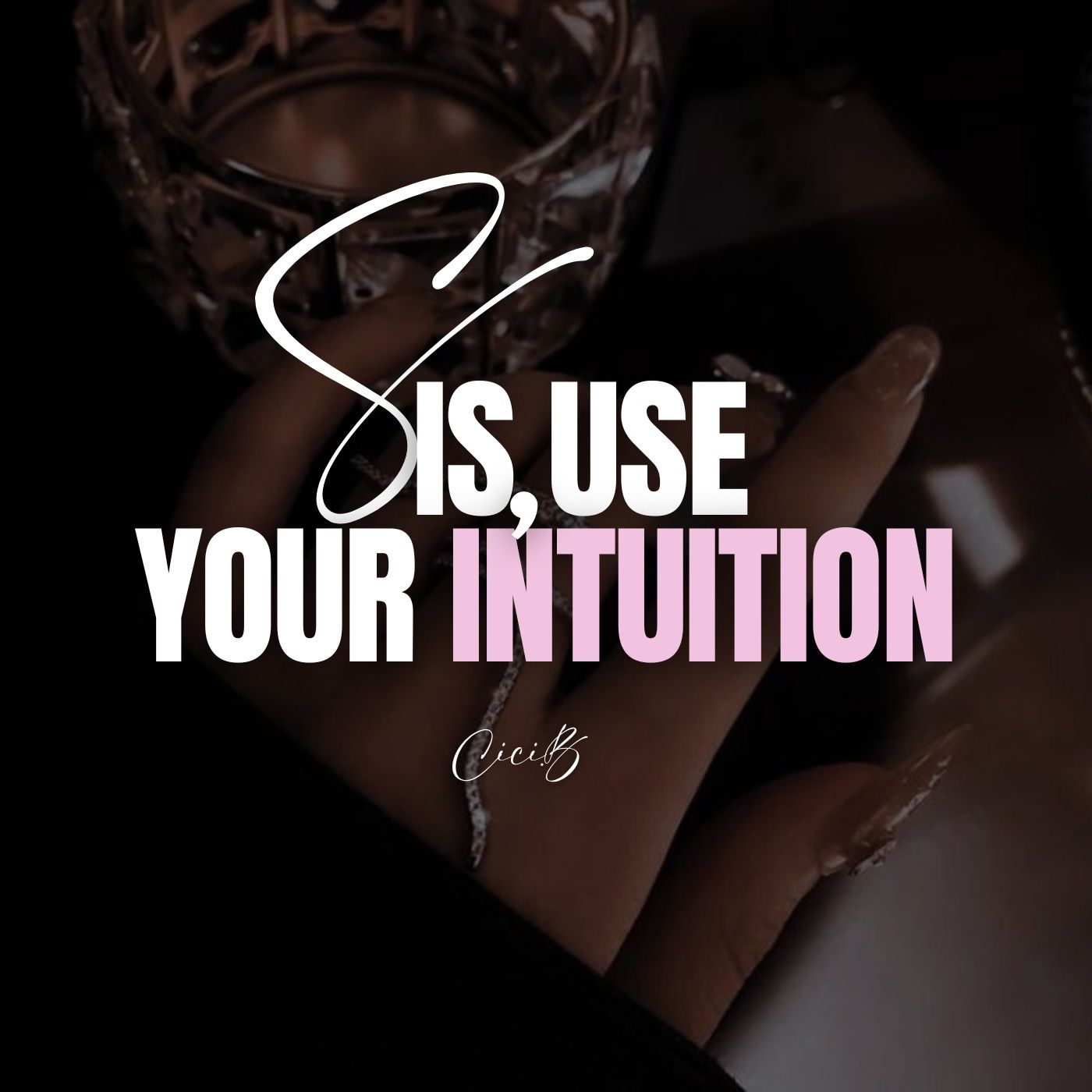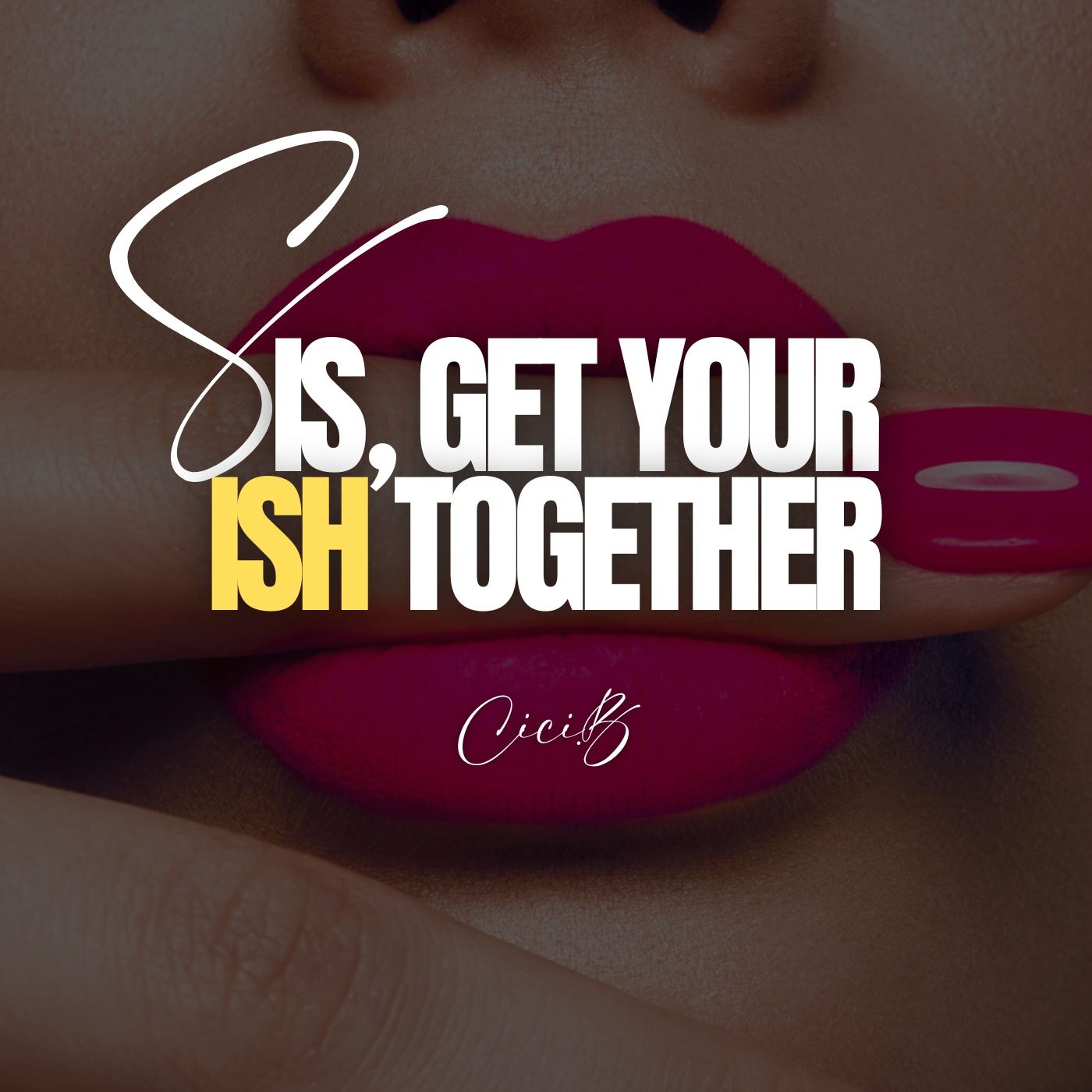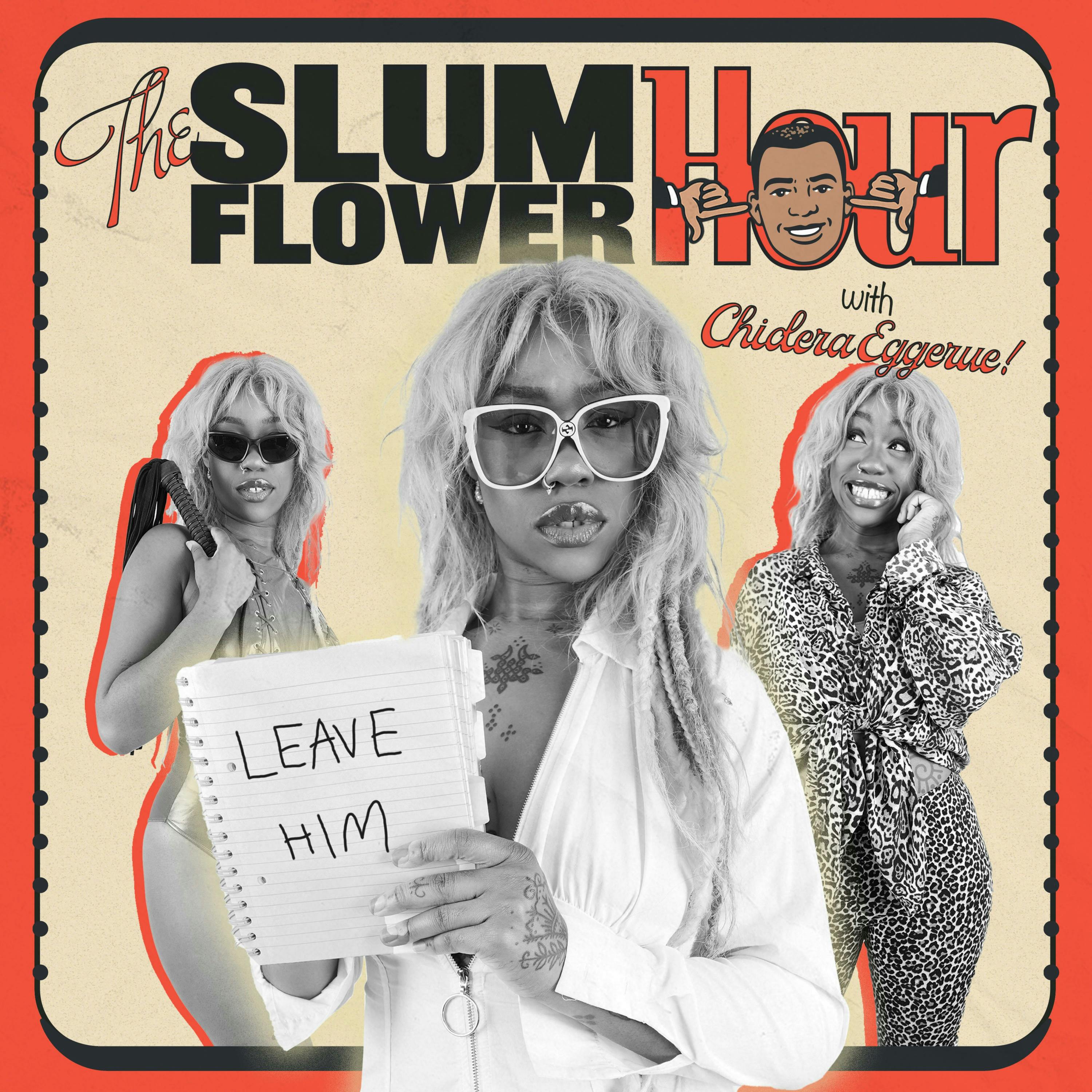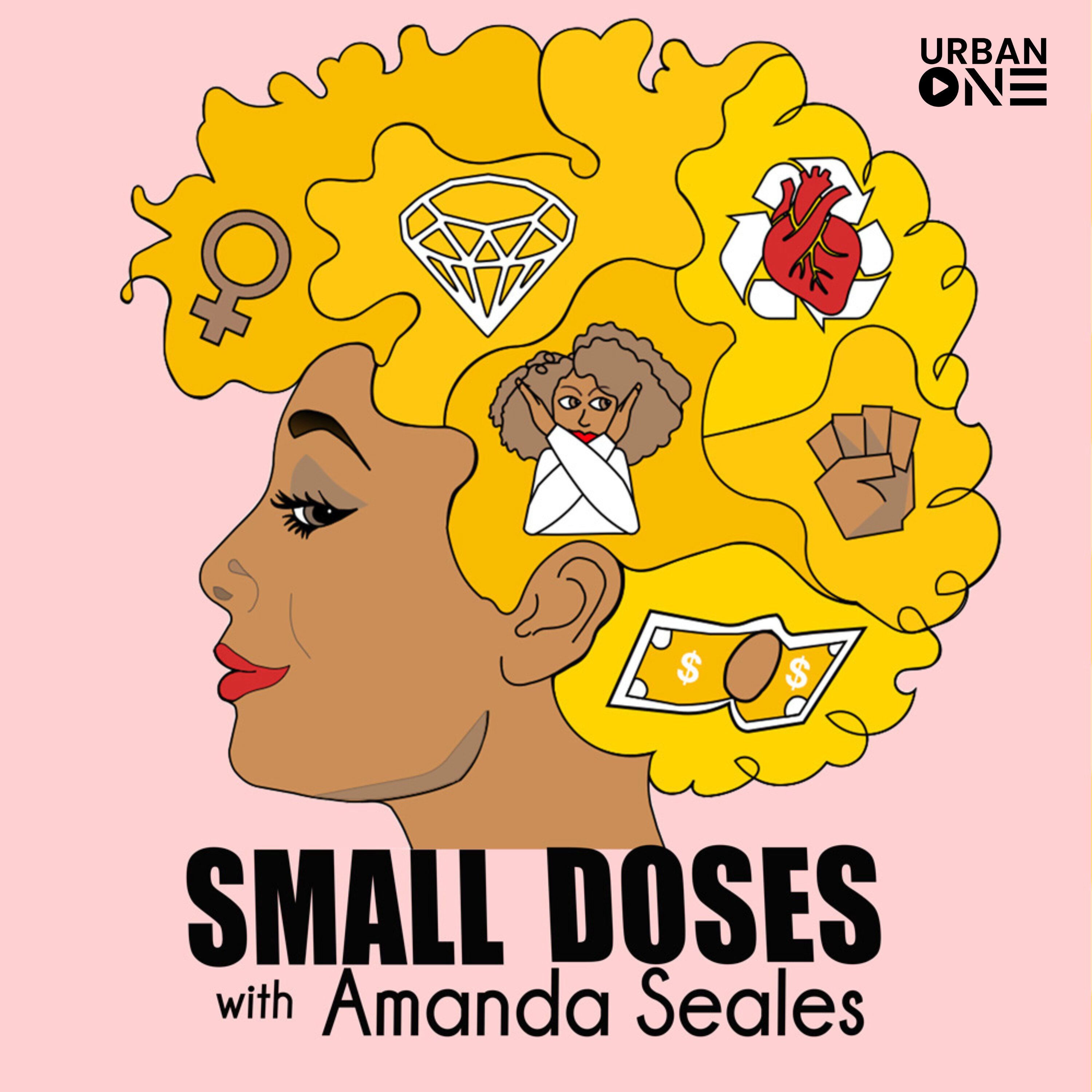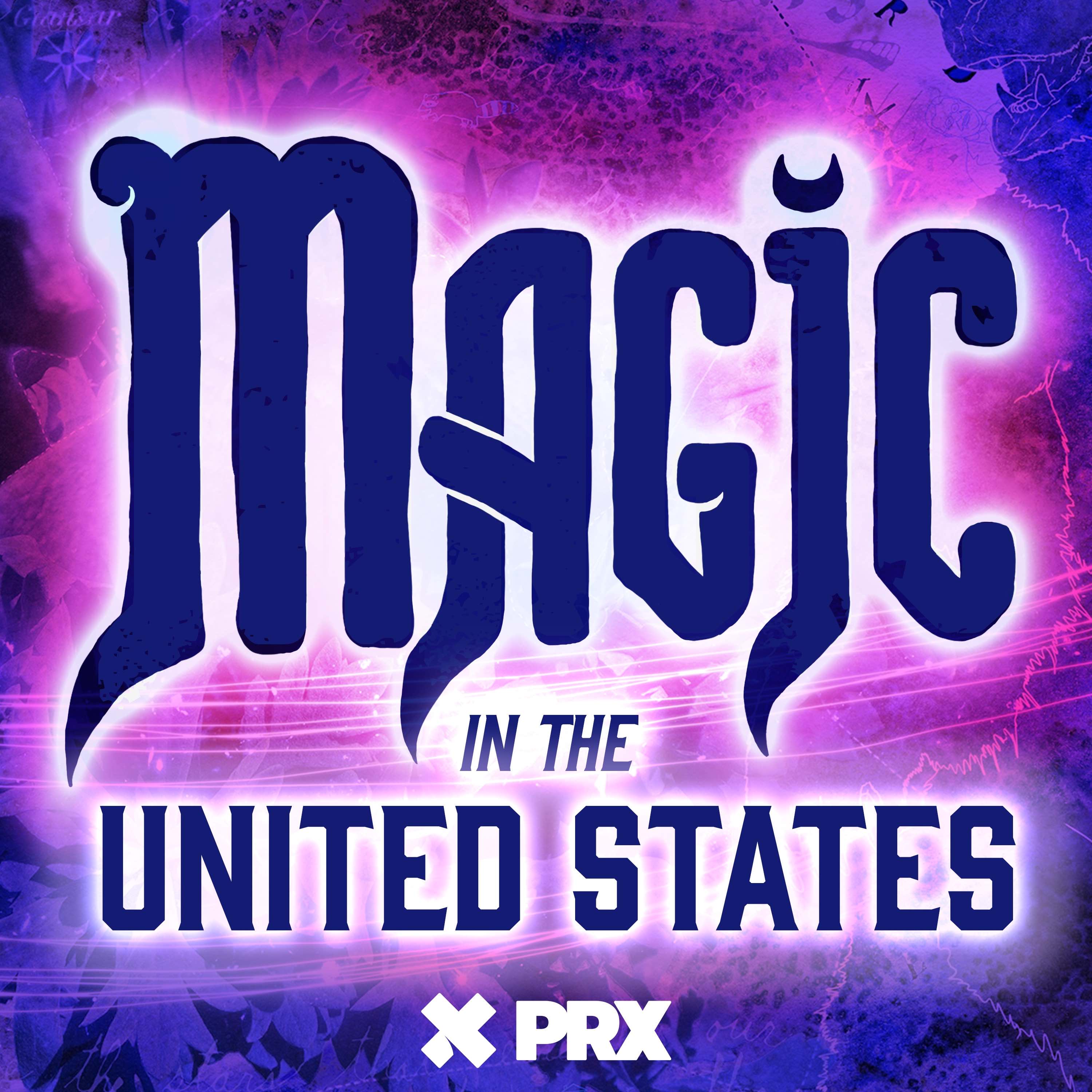
The Prolific Hub Podcast
The Prolific Hub Podcast is a digital archive of all things life, personal development, spirituality & creativity.
The Prolific Hub Podcast
Ep. 41 | Success, Stardust & Social Justice ft. Tracey L. Rogers
On this episode, we welcome Tracey L. Rogers, a certified spiritual life coach, DEI professional, astrologer, author, and activist, to explore her extraordinary journey into the world of entrepreneurship, astrology and social justice. Tracey's upbringing and family traditions planted the seeds for her deep understanding of astrology, and she uses the ancient language of astrology as a tool for self-awareness and radical self-acceptance. Tracey's multifaceted identity provides a rich backdrop for her reflections on entrepreneurship, global affairs, and personal growth.
More from Tracey:
- Visit traceylrogers.com
- Follow Tracey (@trae2u) on IG
- Visit babyastrologybooks.com
- Follow @baby_astrology_and_books on IG
- Read the blog post!
- Watch on YouTube!
Are you a creative, solopreneur or entrepreneur who’d like to be featured on The Prolific Hub Podcast? Let us know here!
Snag a discount on Aliya’s favorite brands with these Referral Codes
Theme Music:
She No Dull Beat by Nana Kwabena
Festivities in Belize by RAGE Productions
Enjoy the episode?
- Share it with friends!
- Send a voice note or text!
- Rate & review the podcast!
- Support the show with a Recurring Gift!
Follow the @theprolifichubpod on your favorite SM platforms!
Grab your guided journal here! Visit thefeminineurgetocreate.com for blog posts, products & services!
Get your custom pieces by troiscoeurxviii on troiscoeurxviii.com!
Hosted by Buzzsprout. See the Buzzsprout - Privacy Policy here.
Hi friend, welcome back to the show. I'm so excited today to be joined by Tracy Rogers. Tracy is a certified spiritual life coach, she is an astrologer, she is an author and so much more. She's an activist and beyond, and I'm just so honored to be in conversation with her. We had such a rich conversation that touched on a lot of things entrepreneurship and businesses, activism, a lot of the world and global affairs that are happening from Palestine to Congo. We touched on astrology all throughout the episode as well. Astrology is a very fun topic for me, as I mentioned things about it all the time, so I really enjoyed this conversation and I hope you will too. I will meet you on the other side of the episode so we can talk about it. All right, with that, let's jump in.
Aliya Cheyanne:Hi everyone, welcome back to the Prolific Hub podcast. I'm your host, aaliyah Cheyenne, and I'm so excited today to be joined by Tracy L Rogers. Hi Tracy, hi Aaliyah. Yeah, I'm super excited about this episode. As everyone knows who's listening. This podcast really centers creatives. It centers entrepreneurs, solopreneurs, just people who are charting their own paths and doing what they want to do in the world, following their purpose and leading the charge on that front and I'm just so grateful and honored to connect with guests who are doing that and I'm so grateful to have Tracy on the show.
Aliya Cheyanne:I know of Tracy's work through a former guest of the show, a friend and a mentor, ashante Rene. During the height of the pandemic and lockdown, ashante had put together an event through Sisu House, a virtual event where Tracy came in and just shared more about astrology to attendees of that event and we got know, we got to ask questions and learn more and that was my first introduction to Tracy and last year I had a one-on-one reading with her, an attraction factor reading and an annual forecast reading, which was just spot on and great. So I'm just so excited to reconnect with Tracy. Tracy is phenomenal and is an entrepreneur and is a generational astrologer and I'm so excited. That's how I know of Tracy and Tracy's work. But, tracy, I would love for you to share with the audience more about you and just who you are in the world today.
Tracey Rogers:Yeah Well thank you for inviting me to be a guest. I am really excited to have this conversation with you and just grateful for the opportunity. Overall, my name is Tracy and I am a consulting astrologer. I'm a certified life coach, I'm an activist, I'm a daughter, I'm a sister, I'm an auntie, I'm a friend, and I have been doing this work directly and indirectly pretty much all my life. I've been into astrology since I was a kid, which we'll get into talking about how that runs in my family. Never intended to do this professionally, but the stars clearly were aligned and I'm grateful to do what I genuinely do believe is God's work. I think it's only through Source that I'm able to do what I do successfully. And I'm also a wanderer and a confused human, a romantic at heart part, an advocate for injustice, and so trying to embody all the parts of me as best I can. That's me in a nutshell yeah, I love it.
Aliya Cheyanne:I think that's one of the best situations. So thank you for sharing just all those different pieces of you and, of course, there's so much more, but thank you for giving us a little glimpse. Yeah, I'm excited to talk about everything astrology, life coaching, just all. All of your work, um, your activism, just everything.
Aliya Cheyanne:So I'm excited to jump in and I love the reading I had with you last year because one of the first things you asked me when I first, when we first started this session, was like what do you know about astrology? And I was just like I like to read about my sense. You know just the basic things and I by no means consider myself an expert. So it was really wonderful to connect with you in that way. It was really wonderful to connect with you in that way, and I often describe astrology as like a tool, like many tools, to help us learn more about ourselves and other people and the world you share. That it's a gift, it's a connection to source. You wouldn't be able to do it without that. But I would just for the folks who might be like, oh, here we go with the woo-woo which is so annoying to me sometimes I would love for you to share a little bit more about how the tool or the technology of astrology has supported you and how you view it.
Tracey Rogers:Yeah, well, I always describe astrology as the practice of looking at planet Atlantis in the sky to interpret how our lives are affected below. And I try to start off with the question of what does someone know about astrology? Because many people know zodiac signs and read horoscopes, which is fine. But a lot of folks don't know about astrology because many people know zodiac signs, you read horoscopes, which is fine, yeah, but a lot of folks don't know that when you're born, you know all of the planets are in different zodiac signs and each planet means something specific to your personality, and what I do is literally look at the stars and planets above to interpret who someone is or how you know their life might be unfolding in the coming six months or the coming 12 months. So I mean, that's a pretty straightforward description of what I do and what astrology is. But for me, you know, I see astrology as a language, and it's a language that is ancient, right, like astrology has been something that has been practiced for centuries, for millennia, and it's a language that captures the essence of who we are in ways that, one, lead to greater awareness and radical self-acceptance and, two, gives form and foundation to the aspects of our personality, our, our purpose in life, our future, our destiny, without any kind of like stigma attached to it. Um, and that's what I love about astrology I I looked at charts all day long and I've never seen one that is the same as the other, because we're each glorified with a unique astrological birth chart.
Tracey Rogers:When I'm giving readings to folks, I don't know anything about them. I don't know their ethnicity, their background, I don't know their life's history or what their future holds for them in terms of what they hope to achieve, and so I go into every reading with no assumptions and no biases about anything, and I love that part of my work because it demands compassion and empathy and openness, and in the process, I'm able to give readings that resonate with folks, that are affirming for them, that generate some level of hope for them or, at the very least, makes them feel like reassured. Okay, I am aligned with who I am, or this is why I have these challenges, or this is why I'm feeling motivated to go in this direction. I'm feeling motivated to go in this direction. So it's a language that I think many people can benefit from, that centers their core essence, their purpose, their role in this incarnation, without any kind of stigma or expectation or judgment or bias attached to it.
Aliya Cheyanne:Yeah, that's so great. Thank you, I just love that way of describing it as a language. I think that's really beautiful and it makes it more. I don't know if accessible is the right word, but it makes it more tangible to people who might not feel like it says. I don't know the right word, but I feel like it makes it more accessible and more tangible to folks who might feel like it's very theoretical.
Aliya Cheyanne:It's a way to ground it in a way that more people can understand. So I think that's really great and there's so much that you said in that. But part of what you mentioned was looking at someone's chart, or even your own chart, as a way to let go of judgment but to just kind of understand different things that might be happening within a six-month period or a 12-month period, or just how someone started, like how they were born into this world and how that shows up for them in their chart. So I would love to know for you if personally, if there were any sort of indicators or maybe placements in your chart that kind of helped you come into your purpose at all, if maybe you felt a way and then maybe you dove into your chart later and astrology confirmed it, or maybe prior to that, maybe you were looking for direction and astrology kind of helped you to see what you were meant to do in this world and just something that connected astrology with how you show up in your businesses. I would love to know yeah, yeah.
Tracey Rogers:So there are two things that I can think of in my chart that you know pretty much. Uh, speak to me entering into this line of work. Uh, one involves the planet uranus and the second involves the North Node. To kind of break things down astrologically, the planet Uranus in astrology is connected to innovation and evolution and change and kind of shaking up the status quo, thinking outside of the box, and I was born with Uranus. In the area of my chart that has to do with what we know, as it relates to the people we interact with, our immediate environment and surroundings, or knowledge or education, and Uranus was moving through the sign of Scorpio in this area of my chart, which Scorpio is a sign connected to death and death and rebirth and transformation and growth and regeneration. So when you put Uranus in the sign of Scorpio, generally speaking and this is a generational placement, and that people born within my timeframe will have the same placement, of Uranus and.
Tracey Rogers:Scorpio, but not everybody has Uranus and Scorpio in this area of the chart that I have, and so when you put Uranus in the sign of Scorpio, it just describes the impact that someone has, or generations have, on bringing about change and growth and transformation in ways that are controversial, untraditional, unconventional, non-conforming. That's that Uranus influence, and so I think that that placement in my chart, and additional aspects that that placement makes to other placements in my chart, really kind of speaks to a desire for greater knowledge and wisdom, beyond the traditional forms of how we receive knowledge and wisdom. So it's like learning in a classroom setting isn't enough for me. Exploring the world is definitely going to open my mind and enhance my awareness, but astrology just allows for greater profundity. It just allows you to go a little bit deeper, beneath the surface of things. So that's definitely one particular placement that speaks to the work that I find myself doing now.
Tracey Rogers:And then the North Node just as the planet Earth has a South Pole and a North Pole, the Moon has a North Node and a South Node, and the South Node in astrology represents our past, the aspects of previous lives that we may be bringing into this particular life, whereas the North Node in astrology represents our destiny, where we're going in this particular incarnation, and I was born in the North Node of the moon, in Leo, right next to my son in Leo, and sun in astrology describes who you are, your ego self, your basic character.
Tracey Rogers:So I have this north node, which I often describe as the north star, in our chart because it's our guiding light, next to my sun, which always has who I am, my physicality, my ego self, and I've had other colleagues give me readings and basically describe this as I'm literally meant to be myself in this lifetime and in the sign of Leo.
Tracey Rogers:I'm meant to be creative, I'm meant to be expressive, I'm meant to give birth to things that have my own unique stamp attached to it. That my North Node and my son. They're in the area of my chart that has to do with the public and networking and groups and associations, and so I would say that those are probably the two main aspects in my chart that really kind of speak to how I have found myself on this path and why I'm able to show up in the work that I do in a way that is so genuine and authentic Everything from you know my family and lineage and ancestry to you know how I have grown and matured and evolved personally on my own. Those are probably you know. I could go on and on, but those are probably that stand out for sure.
Aliya Cheyanne:Yeah, I love that response. Thank you for sharing that. I feel personally also that astrology has been a bit of a tool for me as well to better understand myself and how I want to show up professionally and thinking about my North Node too and like different placements. Sometimes it helps to make things that have been unclear in the past clear or, in a way, I found it affirming about things I've already felt in terms of the line of work that I want to do. So I love that. Thank you for sharing that. There's like some sayings that go around sometimes where I don't know who coined it or where it came from, where people are like oh you know, millionaires may not have astrology but billionaires do.
Aliya Cheyanne:Or, you know, we've heard stories about some past presidents who have had astrologers and they very much use astrology to help ronald reagan decide, like when yes speeches and make announcements on policies and stuff like that yeah it's so interesting to me and I saw a little clip that went viral on TikTok with Dua Lipa, who's a singer, and she was on a podcast and they were, you know, they were asking her like you know, you're very into astrology like, do you use it to kind of like make all of your decisions, like something like that along those lines, and she was like, well, let me put it to you this way, I don't have a therapist, I have an astrologer.
Aliya Cheyanne:It's just like well, I don't necessarily use it as a tool to like direct each and every step. I do think it's a good, um supportive tool or like collaborative tool, to like help you with that stuff. So I always think it's interesting how different people interact with it and use it and, like all of the examples that we see either in pop culture or historically, um, I always find that interesting. Yeah, it is pretty fascinating.
Tracey Rogers:I think I just do how astrology goes through these like waves of resurgence, right, because you know one minute astrology is bad and it's the devil's work, and you know it's, it's, you know, uh, predictive and hot wash and it's not real. And then the next minute you've got you know big time singer songwriters saying that you know they don't go to a therapist, they see an astrologer. I think it just speaks to. I think it speaks to both the mystery around astrology and the simultaneous resonance of astrology, which I just I find that fascinating as well.
Aliya Cheyanne:Yeah, it's always. It's always so interesting to me, yeah, so I would love to talk a little bit more about your activism, because you are an activist and I've seen some aspects of that, even in you speaking out online about certain issues that are happening globally, which is very important and offering a lens and a perspective that's necessary and needed when it comes to raising awareness about particular issues, but also approaching them with I don't know the best way to describe it, but I've seen a video of yours before talking about an issue where just your lens was just above a lot of the noise that we hear on certain topics, and it provided a lot of clarity and perspective and even forced me to think about you know something differently, so I would love to know a little bit more about your journey with activism, like how you came to be an activist. You know what that looks like for you now. If you could share a little bit more, yeah.
Tracey Rogers:So I think my activism began in college. I did my bachelor's in political science and when I finished college I traveled quite a bit around the country working on different political campaigns, and I did so as an organizer. So it demanded that I embed myself in the communities of the representatives I was working for, and that's when I just started to become more aware of I like to refer to it as the people's issues right Like the oh, like you or I, and what we're really thinking about on a day-to-day basis and what's happening in our community, what's happening in our neighborhood, what's happening in our environment. And it's actually what I appreciate the most about my work in politics, because I hate politics now, but what I appreciated about it during that time was that I really had to get to know people and hear stories and I had to build relationships and I had to connect with folks. Granted, it was primarily for the purpose of gaining and garnering their support for the candidate I was working for. But something else happened, which was just a pure kind of compassion and awareness and empathy for folks from communities that don't look like mine, people who don't look like me, and that's where it kind of started and over the years it gradually developed. I feel like I've had, like so many different career incarnations.
Tracey Rogers:So my second career was working in international development and international education, and through that I was working with a lot of youth actually, and so learning to mentor youth and support youth through different aspects of their educational experience and internships and colleges, and preparing them for that future. And then things really shifted, I want to say in 2016, with the deaths and murders of Philando Castile and Alton Stein. It was during that time when I had been particularly active within a church community and it was also a few months before Trump was elected in 2016. And so that really kind of catapulted me into this work for Black Lives and Women's Empowerment, and I was grateful to have a foundation and support in the church community that I was a part of and also just connected with a lot of friends as well, other activists doing similar work, and those relationships continue to this day.
Tracey Rogers:Eventually, I wound up traveling to Israel-Palestine and that was something that was inspired, I want to say, back in 2014, because a lot of the students that I was supporting and mentoring were from Palestine and so knowing what their experience was like living under occupation and in this particular year, you know, having to support and counsel them through another war that they were experiencing at the time, really kind of, you know, shed light on what was really happening and how these students are experiencing life in Palestine under occupation, and that's what motivated me to travel to the region, bit by bit. It's been these experiences that have kind of rage, if you will. Oh no, yes, that demands expression, and I'm so grateful that I'm at a point in my life where I'm not afraid to say what needs to be said, probably why I could never run for office, because there are videos of me saying things that people would probably disagree with or quite involved with.
Tracey Rogers:And all of this has kind of led into work that I do as a diversity and inclusion professional as well. It was working with different companies and organizations and other less formal settings on just how to create more inclusivity and how to be more tolerant and how to understand, you know, life beyond the circles and silos that we live in. So that's kind of been the trajectory of my activism over the past decade plus.
Aliya Cheyanne:Yeah, gosh, so much there. I Didn't even know that you had traveled to that region, israel and Palestine. I saw something I have to. Maybe I should do it right now while we're talking. There was like a clip. People were sharing it a lot in their stories recently and asking others to raise Wow. My words bring awareness to the fact that Google Maps had taken palestine off the map. Yeah, yeah and that is still the case. They have not adjusted.
Tracey Rogers:Yeah, um, that type of erasure is so diabolical to me, in addition to what is actually happening, that type of digital erasure is so diabolical, I agree 100, and I mean that's what the state of Israel has always wanted and so it's very unfortunate it doesn't even capture it. I think you know so my work in international and in development. I managed a high school exchange program that recruited students from the Middle East and Northern Africa. So I've actually traveled quite extensively throughout the region and these students they're like my kids, they're so young and they're so excited to come to the US and do a high school exchange.
Tracey Rogers:And there was one particular year where there was another war happening at the time and they actually known it, they couldn't get out. Year where there was another war happening at the time and they actually known it, they couldn't get out, and then there was delay in them getting back home. So it took a lot of coordinated efforts with, you know, the consulate there and the State Department here. It was just, it was a lot and I think, like I said, that's what really kind of opened my eyes.
Tracey Rogers:There's more going on here than I know, and I know to witness this for myself, and I think it was Ta-Nehisi Coates who said, you know that when he traveled there it was like seeing Jim Crow in real time. And that's the truth. If you're a person of color, especially if you're a black person, and you're traveling through occupied Palestine, it's really quite disturbing, if not flat out sad, and so it's unfortunate that things have transpired to the point where they are today. That said and you know I don't want to get too political or, you know, speak freely, yeah, but I mean that said, palestine will be free. I mean Palestine right now is shining a big old spotlight holding a mirror up to our humanity at this moment, which is so big and significant and that's kind of the times we're living in right now.
Aliya Cheyanne:Yeah, yeah, yeah, it's. You know I often struggle with how much rage I personally feel around a lot of things. It's sometimes I don't want to say comforting, but when I see someone else who expresses that they're just enraged about the world like it makes me also feel seen.
Aliya Cheyanne:I agree that from the river to the sea, palestine would be free, and it's really important, because not only has technology evolved so much that we can actually see this in a way that we haven't seen other atrocities unfold, but it is waking us up to everything, everywhere, everywhere.
Tracey Rogers:Everything, everywhere.
Aliya Cheyanne:It's unearthing everywhere.
Tracey Rogers:Yeah, and to be honest, I mean COVID was a big, big awakener for us.
Tracey Rogers:I remember in that particular year you know I was giving readings for 2020 and 2019 because I have a lot of folks that want a yearly outlook and so I started getting readings for 2020, 2019, and it was very, very clear that stuff was coming down the pike for so many different reasons. There were so many historical transits happening at the same time Transits that happened during the Revolutionary War, transits that happened during abolition, transits that happened during the Great Depression All sanity, yeah. So it was very hard not to predict a shitstorm. I never would have predicted a pandemic. You know how 2020 played out was not entirely surprising for me, yeah, or my clients, thankfully, who had the heads up, yeah, and I remember during covid, you know. Similarly, feeling like this is going to expose so much about how we live, um, and open people's minds to bigger, broader aspects of life here on planet earth and what it means to be human in this day and age, and part of me was kind of giddy about it.
Tracey Rogers:You know, only because the astrology and the times was quite fitting. But as human beings on planet earth, we don't know right like it's. It's not the average person that knows what's playing out above and so, um, it was like being in this in-between place of wanting to share as much as possible what was happening, astrologically speaking and putting it in layman's terms, so that folks could at least have language right on why things were playing out and how best to navigate that particular year, but also like not being a bystander, like I'm not exempt from these transits either right um, and so it was really just a fascinating experience to kind of observe, but also be a part of these big events that were playing out above and below, yeah, and that never really ended like.
Tracey Rogers:A lot of these transits are still very much intact and we're moving into even greater territory, astrologically speaking, on this very moment. So I'm with you in that, you know, palestine has definitely kind of opened Pandora's box in even wider ways. Yes, we're seeing everybody to see the world as it really is, yeah, and be somewhat disillusioned and feel somewhat duped as a result Matter, of course.
Aliya Cheyanne:That's kind of where we are. Yeah, I even think about just the reckoning that so many of us in the West are having now with thinking about places like the Congo, and how much of not just it's the billionaires, but it's also just Western greed and our need to be accommodated, and how that is driving a huge humanitarian crisis there, and how all of it's connected.
Tracey Rogers:Like Palestine, these are not separate incidents. Yeah, all of it is connected, yeah, and all of it speaks to what I can only describe, as you know the fall of imperialism, the fall of these Western civilizations that you know have reached their end date, and it's scary for us Westerners to think about, because what does that mean for us? You know what I mean, but I think this is where I go back to astrology. I can't help but to believe that there is a bigger story and picture unfolding here that my tiny human little mind cannot possibly comprehend.
Tracey Rogers:I remember speaking to friends about, specifically, like the upcoming election and what's happening and all of the genocides happening around the world. Yes, the genocides happening around the world. Yes, and there was such a need to find reason and what's the strategy? Without recognizing that there is a greater source at play here that we also have to consider. It's not up to us, in other words, to figure out what this looks like or come up with the strategy here in pains, then that's what we do. Is we survive, right, by any means necessary? So there's definitely, you know, a big internal conflict that matches the external conflicts that I'm seeing around the world. All of this for the process of each of us leveling up, I think, and ascending and stepping more fully into the roles we're meant to play that are ultimately meant to better the greater good, and collective, in the long run.
Aliya Cheyanne:Yeah, I 1000% agree. Empire has to fall because what we got going is not sustainable. It's not sustainable. That's for us here. So, like it doesn't work, absolutely right, it doesn't work, absolutely right, it does, yeah and yeah, oh goodness, no, that ask, that question would lead us here.
Aliya Cheyanne:I feel like I could go on and on about this forever, because there are so many things, but you also bring up something that I think about a lot, because I also have a personal inner back and forth and turmoil about the things I am witnessing unfold. On the one hand of it, I have this theoretical, ideological, spiritual thing that tells me we are human beings, we're spiritual beings having human experiences. We are manifestations of the universe experiencing itself over and over again. That's what I like to tell myself and that's what I see when I see beauty in the world. But when I see the horror, I have a hard time grappling with that, and I have a hard time grappling with it and accepting it as a means to ascend. And then I have to remind myself that my tiny little human brain cannot possibly fathom or understand the workings of this vast universe. I can't get caught in the either, or I can only do my best and be a part of the change that I want to see, and that's kind of what keeps me going and keeps me grounded in this time, like showing up in the ways that I can, because otherwise these are, these are insane times.
Aliya Cheyanne:Yeah, yeah, yeah, okay. So I would love to ask you, I would love to think that it's our humanity, and like a moral compass, that leads us to want to get engaged with world issues. But I'm also very curious if there are maybe like indicators in people's charts or aspects of people's charts that might show that they're more aligned with activism. Or there might, you know, more likely be someone who wants to be an organizer, who wants to be a leader in a certain space. Do you have any thoughts around that? Or are there things we can look to in our chart that would kind of tell us more about how we show up in activism?
Tracey Rogers:Yeah Well, I think we all have aspects in our chart that reflect something we're passionate about in advocacy, something that you know we might see as a grave injustice. That motivates us to show up in ways that you know support groups or issues, or you know marginalized communities or what have you. Every chart is so special and unique as our human beings right, we're sourdust and so we have these elements already embedded within us. Of course it depends on whose aspects are being triggered and cultivated to manifest in real world activities that center activism and justice right. So that's dependent on each person's nature and transits and experience. But I will say you know, the signs that come to mind when I think of advocacy work and justice work are Libra, aquarius, pisces and Aries.
Tracey Rogers:Libra I always describe as the social justice lawyer of the Zodiac, the skip. Yes, it's a sign that literally values harmony and peace and truth and beauty and love. That's Libra in energy and I always tell folks you know Libra has come off as rather prim and proper, kind, nice, so much so that it's a sign that is way too often underestimated, because if a Libra spots an injustice, that Libra will call it out without being twice. So it is a sign that is generally predisposed to justice work. And keep in mind, as I said, when we're born, all of the planets are in different zodiac signs. All of the signs of the zodiac have some level of influence to our unique astrological birth chart. So you don't have to be a Libra in sun to be predisposed to justice work.
Tracey Rogers:You can have your moon in Libra, you can have your ascendant Libra. I have Saturn and Jupiter, and they were in my chart, so I flew to only read my chart. As well. As Libra aspects tend to, you know, kind of motivate more activism in individuals, aquarius, meanwhile, is a sign that I describe as very futuristic, and so it's a sign that Sight is ahead of the rest of the world, and these are people that are always, knowingly or not, dreaming a new world order. Whether it's through technology, whether it's through social causes, whether it's through higher learning, aligning with different groups, different affiliations, the Aquarius is quite farsighted and always kind of being ahead of what could be, and in many ways it's a blessing and a curse, because the Aquarians typically tend to be so ahead of themselves, ahead of the times, times, that it can be hard to be light years ahead of the rest of the world, but live in this day and age oh, a thousand percent yes.
Tracey Rogers:So they have a special challenge right of having to kind of have these ideas and brainstorm them and what to invent them and give birth to them, but also having to sit on them because the time's not right, they haven't found the right support. The Permanents very much are the visionaries. These are the dream liberators I like to think of. Pisces is the last sign in the Zodiac and represents the end of a cycle, and a lot of astrologers, I always say, believe that Pisces embodies the traits of and represents the end of a cycle, and a lot of astrologers, I always say, believe that Pisces embodies the traits of all of the signs that precede it. And so it's a sign that has an innate understanding, for better or worse, of what it means to be a spiritual being, having a human experience. Pisces is acutely aware of the struggles of mankind, the suffering that we all experience. This mind is known to be extremely tolerant, extremely compassionate, extremely intuitive, forgiving, understanding, non-discriminating, because Pisces knows that everybody is hurting in some way, shape or form, and it's a sign that really wants to help folks move beyond their pain for the purpose of really being able to tap into their purpose as spiritual beings. And then, finally, aries is a very self-assertive influence that demands courage and bravery to be who we are.
Tracey Rogers:A lot of people describe Aries as being selfish. I would disagree. Aries is very self-focused. It's a sign that's meant to self-actualize. It serves as an example, I think, for the world when it comes to what it looks like to be your most authentic self and step into who you are as an individual at this day and age and how you're supposed to contribute to the greater good. So those are the main signs that come to mind, but I do want to say that all of the signs and stories of all of the signs contribute to some form of activism in different ways. I don't want to say these four signs are it? Oh yeah, personally, they play a role when it comes to bettering our humanity and showing up for injustice and using their unique individual gifts for change and for good.
Aliya Cheyanne:Yeah, yeah, I think that's really cool and really like just a super high level, well-rounded answer, and thank you for also giving some just specifics but also being mindful about how different placements show up in your chart and how everyone is a part of this and everyone is inclined to doing the work. So, tracy, I'd love to ask you as well you are like many people. You are juggling many identities and the way that you show up in the world, but professionally, for your businesses and also your activism work, you're juggling astrology and life coaching and DEI work, working with students and like a number of different things. So I would love you mentioned the word harmony before, but I guess maybe balance or synergy is maybe more the word but I would love to know how these varying identities in your business life are showing up and kind of working together to support you in your creative work.
Tracey Rogers:You know that's always such a tough question to ask or to answer, because I remember when I was building that astrology practice more intently, like more, with the purpose of doing it full time, I remember thinking to myself how did I get here and how does this all make sense? I went from political science to international ed and development, to astrology, to DEI. What is the story here? And eventually I stopped asking, because the story is I'm being pulled in these various different directions. I will add that I've got a Gemini mid-haven, and so the mid-haven in your chart really represents the peak part of your chart, describing where you would be recognized for your gifts, for your talents, your vocation, your legacy. And Gemini is a sign that frequents multiple lanes. It's a sign that's very versatile. It's a sign that has a lot of different interests, a lot of different curiosities. So, astrologically speaking, that's one answer to the question, but in terms of how it all blends in a synergistic way, it just does. I became certified as a life coach initially to supplement the astrology readings that I was giving, and that's because I found that I would give readings and folks would be like, okay, great, this is a lot of information, now what? So I wanted to identify some coaching tools that would give the answer to the now what? How do you actually take all of this information and apply it to your life in real time? So that was the motivating factor there and technically, I'm a certified spiritual life coach and I decided to go in that direction because around the same time I got my certification, I became really active in a church community and within that community I was already doing different trainings on how to facilitate conversation. Again, this was a time when, you know, racial tension was increasing. You know, doing different events and hosting seminars. I was just getting so much support and training in this regard anyway. So it was a great additional supplement of having, like courageous conversations and understanding people from different walks of life, different backgrounds. So it all kind of gelled well in that regard.
Tracey Rogers:And as far as the DE, the dei work, people within my activism circle were recommending me to lead seminars and do virtual trainings on diversity and inclusion, which I could technically do, but I didn't have formal training around it, which is why I went certified as a professional. So I always say you know the various hats that I wear. I'm from the business Tracy L Rogers LLC has really just been a series of random unfortunate events. That's the whole way I do it. I, like most people, have a lot of gifts and talents. I, like most people, have a lot of gifts and talents and I'm grateful that I'm able to utilize these gifts and talents in ways that serve a higher purpose than me. I will say that astrology is like that's me innately. Yeah, it certainly informs how I show up in the other spaces and other lanes that I frequent and, again, automatically creates that synergy that I can't possibly try to figure out how to do on my own. It just works.
Aliya Cheyanne:Yeah, yeah, that's so good to me. Thank you for sharing that. I just it's just rhyme or reason.
Tracey Rogers:I mean, it's so hard, especially when I think of business owners and entrepreneurs. It's like, yes, you want to find your niche, in the sense that, what separates you from other people? There are other astrologers out there and there are other life coaches out there. There are other people with podcasts out there, right? And so there's always this like you want to identify what separates you from, but at the same time, it's also okay to remember that you're just part of a larger community that's doing work for a greater purpose. It's not that you're passionate about it. As long as it motivates you, it's good to do it. It doesn't matter if it doesn't make sense or line up in a balanced way. What matters is that you're showing up in your gifts. That's it.
Aliya Cheyanne:Yeah, yeah, that's so good. I love that. I love just the language around. You know having many gifts and expressing them and sharing them and pursuing them. I've mentioned on the show multiple times now at this point, but even when we're thinking about words or things along the lines of purpose, it's really pursuing what lights you up, what makes you feel good, what would you do even if money was not involved? What are you actually passionate about? And sometimes that's more than one thing, and it's okay to explore and do that. I think part of the rigidity that we have in our society now is everyone feels like not everyone. The rigidity that we have in our society now is like everyone feels like not everyone, but a lot of people feel like you need to find one thing and stick to it. We either don't have the time and the space and the grace to pursue everything we want to do, and sometimes it's a privilege to even be able to do that like I absolutely so.
Aliya Cheyanne:Yeah, I I'm in a season of exploring all of my gifts and seeing what I want to do about all of those things.
Tracey Rogers:And it makes sense to me and.
Tracey Rogers:I also think this goes back to what we were just talking about, like the fall of these empires, the fall of Western civilization.
Tracey Rogers:That embeds in us as societies, as a collective, how we're supposed to live, and what you and I are both doing in terms of stepping into all of our gifts and exploring them as we are able, as we are passionate enough to do so, is very counterintuitive to how we're taught to function in society.
Tracey Rogers:And it makes me think of, you know, the quote by Albert Camus the only way to deal with an unfree world is to be so unapologetically free that your very existence is an act of rebellion. Yeah, that's how I try to live my life, by my existence. And if I'm here and breathing in the now, how do I want to exist in this plane? Yeah, and so there is I mean, you mentioned awakening. There is this big unlearning that's happening right now and in the process we're all having to reprogram how we think, how we move through the world, how we approach life in this human body as spiritual beings. Yes, and it does require a bit of releasing of the things that we thought we knew, because we're realizing what we've been told. What we thought we knew actually either doesn't apply or it's completely false, and so it's just a new way of being in the world which, as I said, is very counterintuitive to how we're originally and have been taught to function in this world.
Aliya Cheyanne:Yeah, absolutely. I have so enjoyed this conversation with you. This has been so good. Yeah, we've covered a lot of things, but as we kind of close out our time together, I want to talk to you about what you're hopeful about. And I want to talk to you about what you're hopeful about on a few different levels.
Aliya Cheyanne:I would love to know what you're kind of hopeful about personally, like for your businesses, or your personal life or your businesses, whichever you'd like to share. I would love to know what you're hopeful about as a collective, which we've talked a little bit about, but we can share a little bit more about that, and then this episode will be coming out around midsummer, so I would love to know maybe something you're hopeful about astrologically in terms of thinking about this year, 2024 and midsummer, something that you're hopeful about in that area.
Tracey Rogers:Personal Personal, I'm hopeful to start a family this year, if I can. Yes, I am hopeful for love. Um, as far as my business, I am a couple of things I I'm realizing, as I am officially midlife um, that it's time for me to start acting like it when it comes to my work. Okay, so I'm hopeful about launching a new website. I'm hopeful about pushing baby astrology books. I write baby astrology books and I'm hopeful about really marketing them a little more and really just kind of expanding myself in a way that really sees me embodying without apology or without reservation, I should say these gifts that I do possess. I feel like for most of my career, I've been operating just a little bit underneath the radar, so it's like you see me, you know me, you don't see me that way, you don't know me. That big Part of that is intentional, but it doesn't disservice, I think, to source. When I have these gifts, I might as well really embody them and embrace them as bigly as I can. So that's something that I'm hopeful for when it comes to my business, business. And as for the world, or the collective, yeah, I'm hopeful. You know what has been given me.
Tracey Rogers:The most hope about all of these genocides taking place is that the world is in fact standing up and educating and protesting and really signaling enough. It's easy to get caught up in the handful of folks that are trying to perpetuate these evils, seeing just how little our government, for example, has done in support of Palestine, knowing Benjamin Netanyahu's endgame in Palestine, so it's easy to get caught up in. This is still unfair. This is so wrong, this is awful. I mean, we're talking about genocide here, so like, yeah, it's bad. And at the same time, we see protests around the world, all to this very day, and so that gives me hope for humanity and recognizing it's not just me. People are in fact also enraged and speaking out and protesting, so that makes me hopeful. This is kind of, you know, a nice segue into the final hope.
Tracey Rogers:Astrologically speaking, you know, the planet pluto, which is connected to evolution and transformation, is entering the sign of aquarius this year and this planet's been moving in and out of the science capricorn and aquarius since last year, finally enter aquarius later this year. After it direct it's retrograde. Now it's going to retrograde back into Capricorn when Pluto re-enters Aquarius, which interestingly happened just a couple of weeks after the elections in November. It's going to stay there for like the next 20 years and, as I mentioned, aquarius is futuristic, aquarius is innovative, aquarius is about the people and Pluto is transformation. So I'm really hopeful about that particular transit, because it really does see a public uprising, if you will. Yeah, an active uprising that is looking ahead to the future and putting to bed these old systems and structures and institutions that do not properly serve the people. Is this going to be an easy transition? Absolutely not, and I'm here for it. 150%, yeah. So that is what I was hopeful for, astrologically speaking.
Aliya Cheyanne:Yeah, thank you, tracy. I am wishing you all of just the good energy and the blessings for family and for love. Thank you for sharing that vulnerably. I am wishing you all the best for your changes in your business, from your website to your baby astrology books. That's going to be really exciting as well. And thank you for offering a glimmer of hope around humanity right now your hopes for the collective, but also just what's happening astrologically and what that might mean for our lives in the years to come. And thank you for sharing that. I would love to know, before we go, if you have any last thoughts or anything that didn't get to share that you would like to share, and after that, if you could just let folks know where to find you and support your work.
Tracey Rogers:Yeah, just thank you. Thank you for the invitation to be on your show and for this conversation. I always treasure these conversations because they don't happen often enough, I feel like, and it's just nice to connect with kindred spirits and talk about things in the world. So thank you. And then, in terms of where you find me, probably the easiest place to find me is my website, which is my name, tracielrogerscom or babyastrologybookscom, and it's through my website that you'll also be able to access the different social media platforms that you can find me on as well.
Aliya Cheyanne:Amazing and I will be sure to link all of those in the show notes as well. Thank you so much, tracy. This has been really wonderful. Thank you, leah. What a rich and dynamic conversation with Tracy. Tracy, thank you so much for joining me on the show and for being so open and for talking through a wide range of topics together. I loved our conversation and I appreciate you taking the time to chat with me and to chat with my listeners.
Aliya Cheyanne:For everyone who's listened to this episode, I hope that you enjoyed it. I hope that you found it valuable and informative. I hope that you found it inspiring for your own approaches to your creative journey, your solopreneurial journey, your entrepreneurial journey, your maturepreneurial journey. Yeah, if you have any thoughts about the episode, you can text the show. There is a link in the show notes below. You can hit that and send a text to the show. I won't see your full number or your name. I'll see the last four digits, but I'll have a chance to respond to you on the show.
Aliya Cheyanne:You can write a review Love reviews. They help to boost the show tremendously so that other people can find it and tune in. Or you can shoot me an email at podcast at theprolifichubcom if you'd like to share thoughts that way or send a voice note. I'd love to know what you thought about today's episode, what your engagement is with astrology, if you have thoughts on any of the activism conversation we had, I would love to hear that as well. Thank you so much for tuning in and I will catch you on the next episode. Bye.


